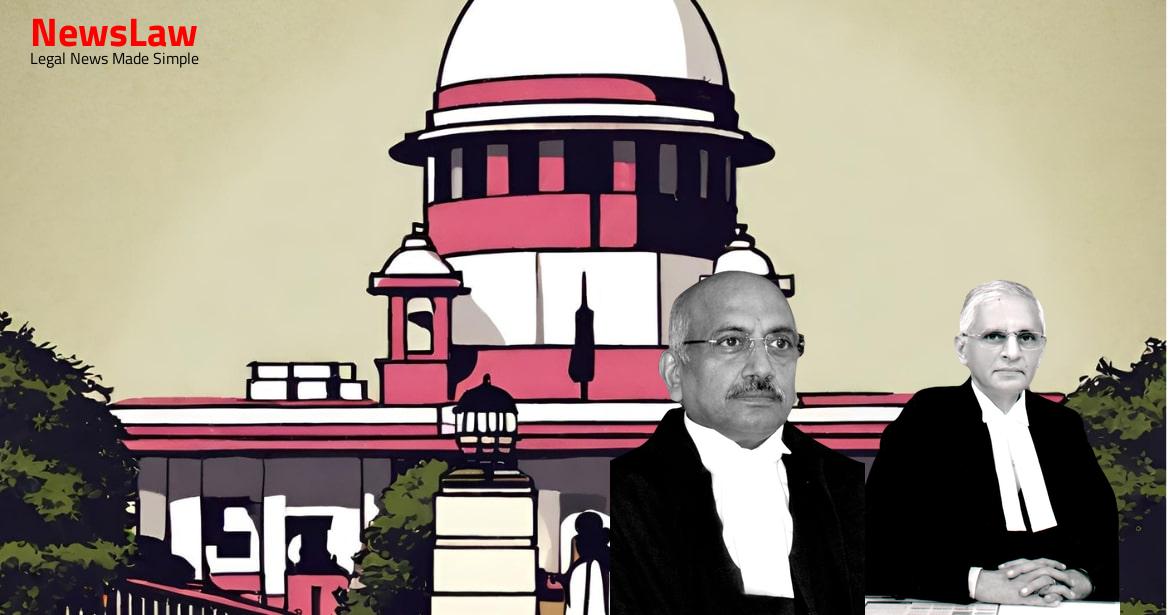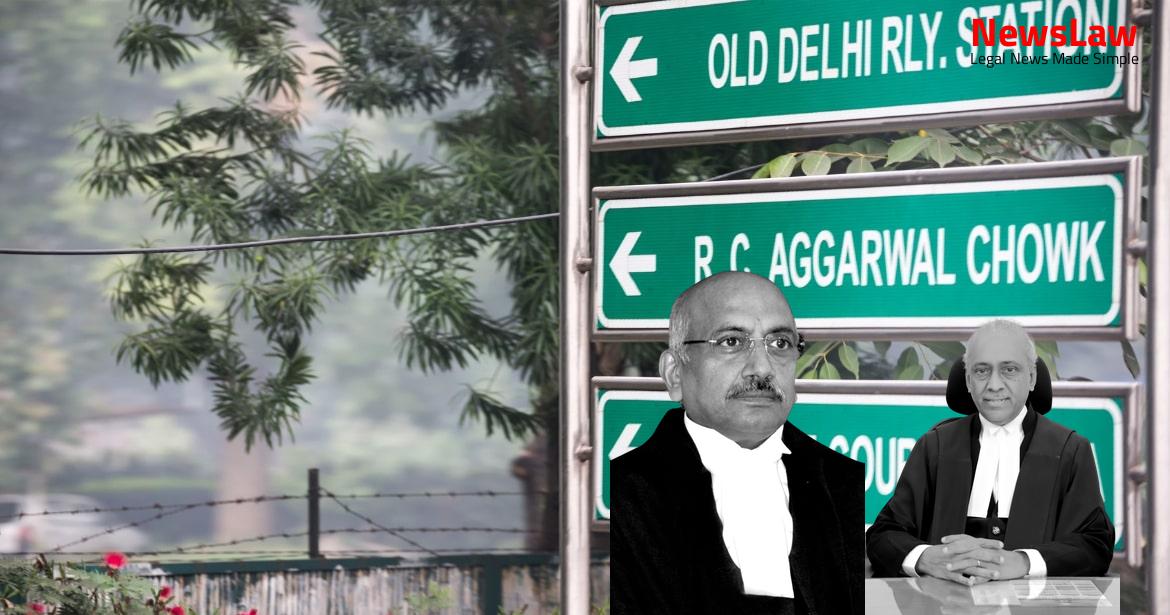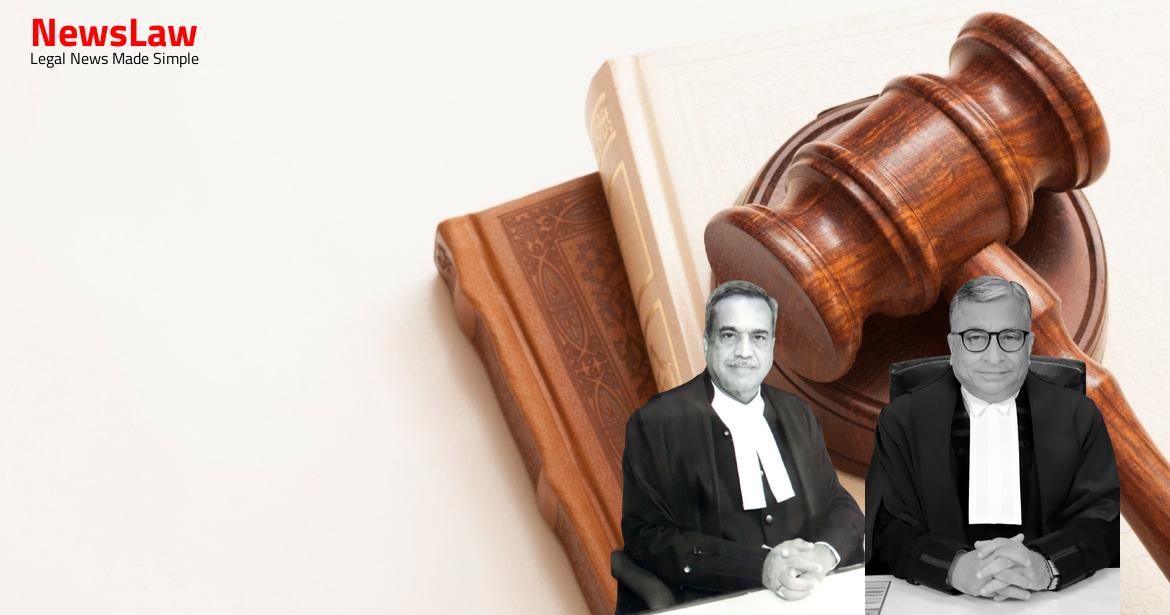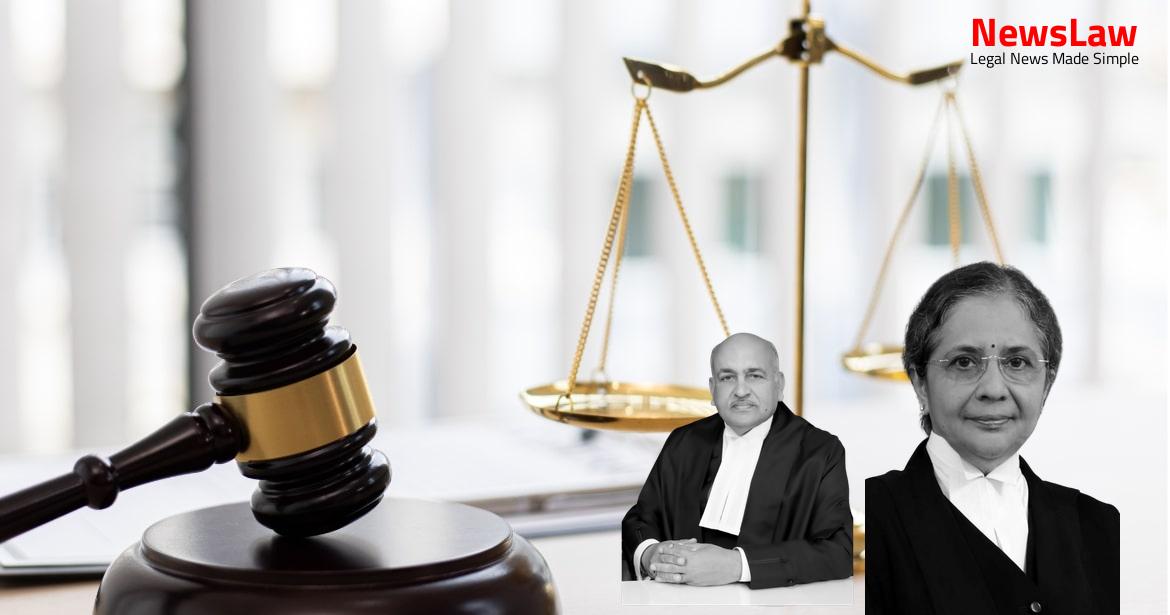Delve into the nuanced legal analysis conducted by the High Court regarding the allocation of government accommodation to retirees, as discussed in a recent judgment. This case sheds light on the complexities of housing policies for retired government officials and the balance between serving officers and retirees in bureaucratic positions.
Facts
- The respondent, a Kashmiri migrant, was allowed to retain government accommodation for another year after attaining superannuation.
- Dhar submitted a representation to retain the house allotted to him on a nominal license fee until circumstances in Jammu & Kashmir improved.
- Out of 54 appellants in court, 23 had vacated government accommodation and 31 were still occupying it.
- 37,280 families were registered for relief, but only 5,000 families were provided accommodation.
- Transit accommodation or Rupees One Lakh per family was to be provided to those not accommodated.
- An order in J.L. Koul was passed by the Court stating that no further action is required.
- It was held that Dhar cannot return to his own State, leading to the order of eviction being kept in abeyance.
- The appellants were given the option to provide alternative accommodation to Dhar in Faridabad on a nominal licence fee.
- The decision from J.L. Koul was affirmed by the Division Bench of the High Court of Punjab & Haryana.
- J.L. Koul was a case involving residential accommodation allotted to a government servant in Jammu during 1989-90.
- The orders from J.L. Koul were challenged in the High Court of Punjab & Haryana via a civil writ petition, which was allowed on 24.10.2010.
- The Single Bench of the High Court referred to an order passed by the Court in J.L. Koul v. State of J & K.
Also Read: Critical Analysis of Circumstantial Evidence in Arson Case
Arguments
- In the case referred to as Lok Prahari (I) v. State of Uttar Pradesh & Ors., the Ex-Chief Ministers Residence Allotment Rules, 1997 were declared illegal.
- In Lok Prahari (II) v. State of Uttar Pradesh & Ors., an Act passed by the Uttar Pradesh Government to regularize allotment of Government houses to Ex-Chief Ministers was set aside.
- Judgments in S.D. Bandi v. Divisional Traffic Officer, Karnataka State Road Transport Corporation & Ors. and Shiv Sagar Tiwari v. Union of India & Ors. were also discussed.
- Mr. Handoo, representing the respondent, cited a judgment from the High Court of Delhi in Union of India & Ors. v. Vijay Mam.
Also Read: Analysis of Commencement Date in Gratuity Act Amendment Case
Analysis
- In the judgment in J.L. Koul, it was held as a binding precedent.
- High Courts have treated directions issued under Article 142 as law declared by the Supreme Court.
- In Ram Pravesh Singh & Ors. v. State of Bihar & Ors., it was established that directions given under Article 142 are not binding precedents.
- The Uttar Pradesh Government framed Ex-Chief Ministers Residence Allotment Rules, 1997 based on a report by the UN Committee on Economic, Social and Cultural Rights.
- Principle 7 ensures proper accommodation for displaced persons.
- Rehabilitation scheme by the State Government was approved by the Court.
- In Lok Prahari (II), U.P. Ministers Act, 1981 was struck down by the Supreme Court.
- The Delhi High Court’s decision allowing displaced persons to retain or be allotted government accommodation was deemed erroneous by the Court.
- In S.D. Bandi, it was established that government accommodation is meant for serving officers, not retirees or those who have demitted office.
- The right to shelter argument was examined in Shiv Sagar Tiwari and S.D. Bandi cases.
- Courts should be wary of providing relief based on special facts, rather than following the ratio decidendi.
- A right to shelter is a fundamental right, but does not extend to government accommodation.
- Retirees have options for transit accommodation or cash compensation.
- Government accommodation is for serving officers, not retirees.
- The right to shelter is satisfied when alternative transit accommodation is provided.
- No policy exists to provide accommodation to displaced persons due to terrorism in Jammu & Kashmir.
- Retaining government accommodation indefinitely for retirees is unfair to serving officers.
- Retirees like Dhar are in higher bureaucratic positions and their accommodation is at the cost of serving officers.
- The orders passed by the High Court are deemed arbitrary and irrational.
- Disagreement with the reasoning provided by Delhi and Punjab & Haryana High Courts.
- High Court orders found to lack basis and a policy for allotment of government accommodation to a retired government servant who may be a victim of terrorism.
Also Read: Interpretation of Will and Hindu Succession Act: Legal Analysis
Decision
- The order passed by the High Court is set aside
- The writ petition challenging the order under the Act is restored
- The present appeal is allowed
- The appellant must submit a report on the action taken against retired Government officials in Government accommodation post their retirement by 15.11.2021
- The respondent-Dhar is granted time to hand over vacant physical possession of the premises by 31.10.2021
Case Title: UNION OF INDIA Vs. ONKAR NATH DHAR (2021 INSC 382)
Case Number: C.A. No.-006619-006619 / 2014



